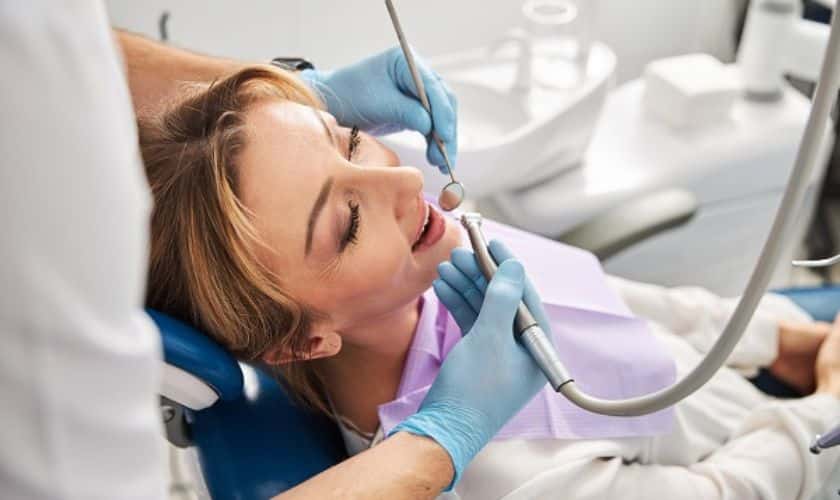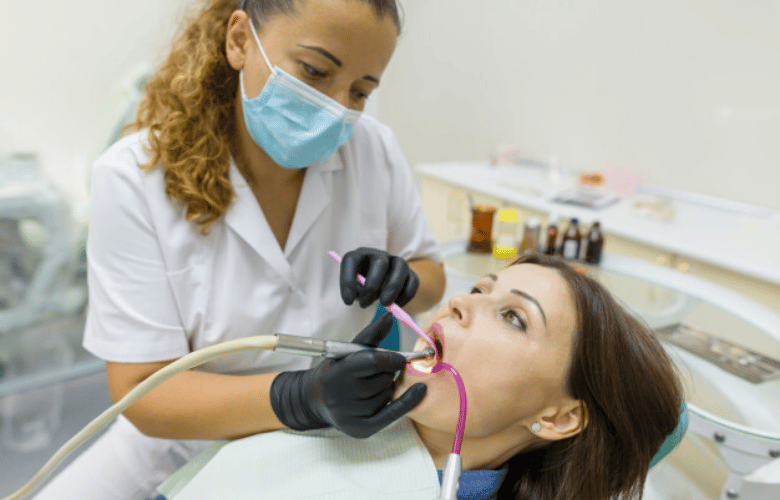Top Family, Cosmetic and Implant Center In 537 Amherst St, Nashua, NH 03063
Sedation Dentistry Can Alter Your Experience In 8 Ways

Have you ever been to the dentist and felt so anxious that it was hard to relax? If so, you’re not alone. Many people experience dental anxiety and fear when it comes to visiting the dentist. Luckily, there’s a solution: sedation dentistry. Sedation dentistry is a safe, reliable way for people with dental anxiety or fear to receive the dental treatment they need without feeling overwhelmed or scared. Let’s take a look at how sedation dentistry can make your next dental visit more pleasant and less stressful.
Pain Management
One of the biggest benefits of sedation dentistry is pain management. With sedation dentistry, patients are able to relax during their treatment, which helps them feel less discomfort during the procedure itself. This is especially helpful for those who have sensitive teeth or gums or who require longer treatments.
Reduced Anxiety
Sedation dentistry also helps reduce anxiety levels by calming patients before and during their appointments. It can help decrease stress and make dental visits less intimidating for those who feel overwhelmed in traditional settings. Additionally, because patients are relaxed during their appointments, they are usually able to complete their procedures in fewer visits than they would have without sedation dentistry.
Longer Appointments
For some procedures, it may be necessary to complete multiple appointments over several days in order to complete the entire treatment plan. With sedation dentistry, however, many procedures can be completed in one longer appointment since patients will be relaxed throughout the entire procedure rather than having breaks between each step of the process as they would in an un-sedated state.
Improved Comfort Levels
Sedation dentistry also helps patients stay comfortable during their treatments by providing them with an alternative option to traditional methods such as numbing injections or local anesthesia that can cause discomfort or pain while wearing off after a few hours post-treatment. By allowing patients to remain relaxed throughout their treatments, sedation dentistry ensures that no additional discomfort is experienced due to prolonged treatments requiring multiple injections for numbing purposes throughout each session.
Improved Memory Recall
Patients under the influence of sedatives often report improved memory recall after their treatments; this means that they are more likely to remember details about their procedure even months after it has been completed since they were completely relaxed throughout the entire process and were not distracted by any concerns about pain or discomfort from traditional methods such as injections or local anesthesia administered prior to beginning treatment sessions.
Conclusion
All in all, sedation dentistry offers numerous benefits for those who suffer from dental anxiety or fear when visiting the dentist office—from reducing anxiety levels and helping manage pain during treatment sessions all the way through improved memory recall following completion of procedures! If you think this type of solution might work well for you, don’t hesitate to discuss it with your dentist today! You could be on your way towards a much better experience at your next appointment!
Sedation dentistry is a type of dental procedure that uses medication to help patients relax during their procedure. It can also be used to reduce anxiety and pain during treatment, and help create a more comfortable atmosphere for patients who need extensive or multiple treatments.
Sedation dentistry works by helping the patient relax and making the entire experience more comfortable for them. The medications used induce a state of relaxation that reduces anxiety and discomfort during the procedure, allowing the dentist to perform complex procedures with ease and accuracy.
Sedation dentistry has many benefits, including reducing pain, anxiety, and discomfort during procedures; reducing stress levels; decreasing blood pressure; improving recovery time; increasing patient control over their own dental care; promoting faster healing time after treatments; and providing a better overall experience for the patient with improved results from treatment.


